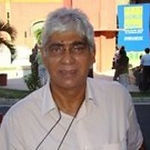




PROGRAMMING
October 8th
MINICOURSES
8 am to 10 am
Minicourse 01 - Digital History
Prof. Dr. Diogo Silva
(UNIVERSE)
Minicourse 02 - Sources in Regional History
Prof. Dr. Arthur Orlando
(FASM)
CONFERENCE
10 am to 12 pm
A história regional e a (re)construção da historiografia do Brasil Império
Prof. Dr. Cristiano Christillino
(UFPB)
LUNCH BREAK
12 to 2 pm
ROUND TABLE 02
2 pm to 5 pm
NETWORKS AND FLOWS: A METHODOLOGICAL, SOCIAL, AND FINANCIAL ANALYSIS OF IMPERIAL BRAZIL
%2014_29_09_c040e6b5.jpg)
DAY 09/10
ROUND TABLE 03
10 am to 12 pm
HISTORIOGRAPHICAL EXCHANGES AND REGIONAL
CONNECTIONS IN THE HISTORY OF THE REPUBLIC
LUNCH BREAK
12 to 2 pm.
CONFERENCE
OF
CLOSING
2 pm
Time, Space, and
the Work of the Historian
Prof. Dr. Cezar Honorato
Professor Titular de História Econômico-social
(UFF)
%2010_08_05_75650630.jpg)
